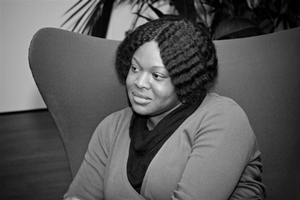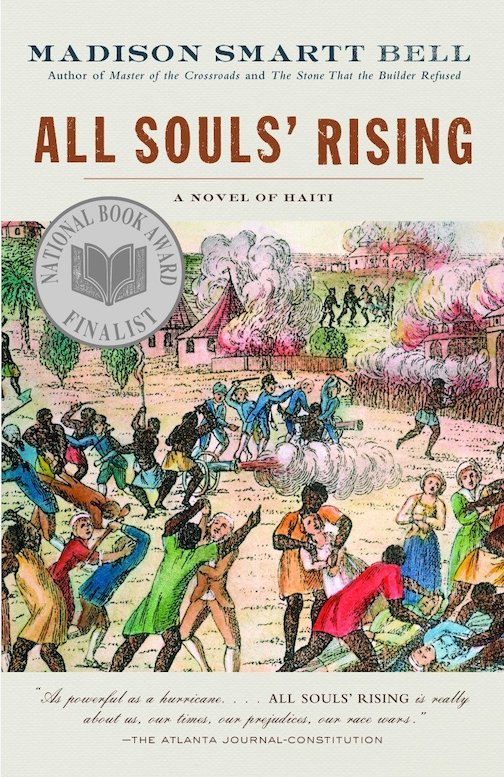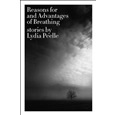Looking Forward to a Life in Poetry
Vanderbilt grad student Stephanie Pruitt garners national recognition
“It’s amazing, absolutely amazing!” That’s Nashvillian Stephanie Pruitt’s response to being named one of Essence magazine’s “Forty Favorite Poets,” part of the publication’s fortieth anniversary celebration. Her surprise is understandable. Pruitt, who will receive her M.F.A degree from Vanderbilt today, was listed along with celebrated writers like Rita Dove and Gwendolyn Brooks. Moreover, it’s fair to say that the last thing young poets expect is attention from the national media. A fiction writer can dream about making a big splash with a first novel, but poets know that academic prizes and kind reviews in literary journals are the usual measures of success. Being featured in a glossy national magazine was surely not on Pruitt’s agenda.
As unexpected as the recognition may be, Pruitt actually began working toward it fifteen years ago, when she was a student at Nashville’s Hume-Fogg High School. She took a creative writing class with Bill Brown, a widely published poet who taught at the academic magnet school for two decades. Pruitt describes Brown as “an amazing model of what a poet’s life can be” and credits him with inspiring her own vocation. “He really shifted my perspective on possibly having a life in poetry,” she says. For his part, Brown recalls Pruitt as a student with “explosive creativity that radiated in many directions,” a young woman who “seemed to face life with exuberance. Her writing had the same flair.” Brown and Pruitt have given joint poetry readings in recent years, and Brown now calls his former student “a friend and colleague with keen potential.”
 That potential has taken some time to flower. Pruitt “took the long road” to formal education after graduating from Hume-Fogg in 1997. She started a family—daughter Nia is now ten—and worked at a variety of jobs while studying for her bachelor’s degree in marketing and psychology at Middle Tennessee State University, which she completed in 2005. In spite of the academic detour, she never abandoned poetry. “I was writing a lot and I was connected to a lot of writing communities, like Cave Canem and Affrilachian Poets,” she recalls. She also worked as a freelance grants writer for community arts organizations. Her self-published book, I Am, appeared in 2002 and was followed by a spoken-word CD in 2003. In 2005, her poem “I Will Wear This Hat” appeared in Essence. Pruitt credits the Internet with enabling her to be part of the wider literary world while work and family kept her close to home: “Say what you will about social media, I’ll always appreciate the fact that it helped me stay connected to writers I wouldn’t necessarily be able to find right here in Nashville.”
That potential has taken some time to flower. Pruitt “took the long road” to formal education after graduating from Hume-Fogg in 1997. She started a family—daughter Nia is now ten—and worked at a variety of jobs while studying for her bachelor’s degree in marketing and psychology at Middle Tennessee State University, which she completed in 2005. In spite of the academic detour, she never abandoned poetry. “I was writing a lot and I was connected to a lot of writing communities, like Cave Canem and Affrilachian Poets,” she recalls. She also worked as a freelance grants writer for community arts organizations. Her self-published book, I Am, appeared in 2002 and was followed by a spoken-word CD in 2003. In 2005, her poem “I Will Wear This Hat” appeared in Essence. Pruitt credits the Internet with enabling her to be part of the wider literary world while work and family kept her close to home: “Say what you will about social media, I’ll always appreciate the fact that it helped me stay connected to writers I wouldn’t necessarily be able to find right here in Nashville.”
For years, Pruitt considered pursuing a graduate writing degree, but none was offered by any of the nearby universities, and moving wasn’t an option. The usual alternative—a low-residency degree—seemed like a bad idea. “Low residency programs work for some people,” Pruitt says, “but I lose focus if something isn’t right in front of me.” In 2006, Pruitt was working for the Vanderbilt Center for Nashville Studies when the university created its M.F.A. program in creative writing. She made up her mind to apply.
It turned out to be the right decision. Not only has the program become one of the most highly regarded and most selective in the country, but Pruitt found it to be “like a microwave for my writing. It really propelled me and made me look at myself and my work in a more critical way. And it’s helped me be a lot more intentional with what I’m doing.”
That intentionality has been focused in recent months on the collection of historically-inspired poems, Sankofa, that constitutes her thesis. The poems, set in the decades prior to the Civil War, tell the story of fictional half-sisters, Adelia and Bell, who escape slavery on a Middle Tennessee plantation and begin new lives in the North. Pruitt employs various forms in the collection, and in some poems the characters speak for themselves in dialect written to be read aloud, as in “Bell’s Departure”:
We can ride any mare on dis farm.
Dey no dees hands, where I done carried
uh buket uh oats to ’em at e’ry half hung sun.
I walks slo, take mah finguhs to dey neck and rubs ’em
in circles, den I blows mah breff rite ovah de tip uh dey nose.
Sankofa—a word in the West African Akan language that means “go back and retrieve it”—is Pruitt’s first serious foray into historical narrative, but she doesn’t see it as a departure from her previous work. The poems are about the women “walking through their own lives,” she says. “They’re about surprise and disappointment, the self-talk we have. Those are things I write about all the time.”
Novelist and songwriter Alice Randall, who teaches at Vanderbilt as a Writer-in-Residence, read Sankofa as a work-in progress. She sees the poems as one way of recapturing the history of African-American women, noting that “recorded history and true occurrences are not always the same.” Pruitt, Randall says, “animates history, framing intimate, imagined historical moments, in ways that illumine the present.”
Pruitt’s concentration on her writing while at Vanderbilt has not stopped her from continued involvement with the wider Nashville community. She has served on the board of Youth Speaks Nashville, which promotes literacy through writing and spoken-word performance, and she teaches writing workshops at Magdalene, an organization that helps women rebuild their lives after prostitution and drug addiction. Rev. Becca Stevens, the founder of Magdalene, lauds Pruitt’s generosity as well as her talent, and describes her in terms that echo the observations of Bill Brown. “She loves people,” Stevens says. “Her poetry is as beautiful as her spirit.”
Pruitt plans to continue teaching those workshops after she leaves Vanderbilt, and she hopes to find a publisher for Sankofa, but above all she intends to continue focusing on writing. “I’ve finally respected myself and my work enough to be able to say that writing poetry is a full-time job.” She’ll pursue the job with a little more self-consciousness—and a little more confidence, as well—after the recognition from Essence because there’s “kind of that onus of knowing that people are watching, in a way. It’s odd, because I didn’t really expect it, especially not right now … but it’s nice to know that there’s an audience that’s interested in poetry. That feels great.”


